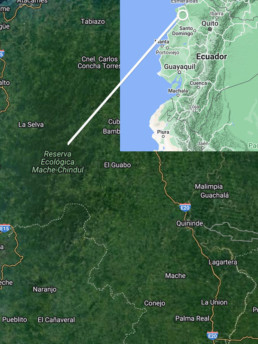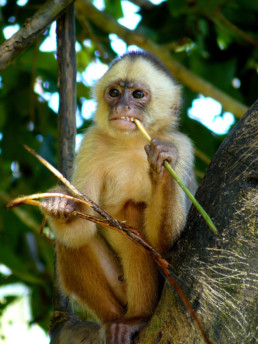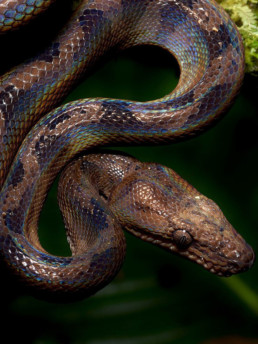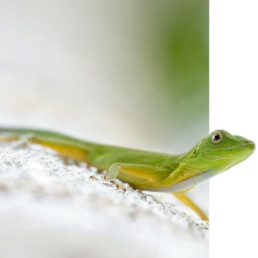Location
Esmeraldas province in northwestern Ecuador
Goal
To enlarge an important reserve in the highly threatened Ecuadorian Choco, increasing its conservation value.
Project Field Partner
Fundación para la Conservación de los Andes Tropicales (FCAT) is an Ecuadorian NGO composed of local residents and scientists, all committed to achieving lasting conservation of biodiversity in the Tropical Andes region.
Size of Area Involved
40 hectares, enlarging the reserve to 590 hectares

The humid forests of the Chocó Biogeographical Region of northwestern Ecuador support exceptional biodiversity, much of which is endemic to the region. The 120,000-ha Mache-Chindul Reserve (MCR) occupies a unique transitionary zone between the Chocó and the drier Tumbesian zone to the South. MCR is a BirdLife International Important Bird Area (IBA), is in the process of becoming a Key Biodiversity Area, and contains a RAMSAR designated wetland. The 592-ha reserve of FCAT lies along the boundary of the MCR and is one of the largest continuous forest reserves in the region. It supports many Neotropical migratory bird species and threatened species including the Critically Endangered Ecuadorian white-fronted capuchin (Cebus aequatorialis), Endangered banded ground-cuckoo (Neomorphus radiolosus), Endangered mache glassfrog (Cochranella mache), Endangered Blomberg’s tree boa (Corallus blombergi), and Vulnerable long-wattled umbrellabird (Cephalopterus penduliger).
Threats
Over 96% of the Ecuadorian Chocó’s primary forests are lost and what remains is not well protected. A study found that 10% of the forest within the boundaries of the Mache-Chindul Reserve (MCR) was lost from 2000-2008 and that MCR is the worst performing reserve in the Ecuadorian protected area system. From 1990 to 2008, this region had the highest deforestation rates and among the lowest rates of forest regeneration in Ecuador. This habitat loss is driven by several thousand people with limited economic opportunities who live within the MCR borders, leading to deforestation and species loss in a region where over 90% of local residents live in poverty. As a result, globally threatened and endemic species in the area are declining.
In 2021, FCAT purchased land to consolidate its reserve. The reserve has enabled FCAT to generate a robust and predictable income stream for its long-term management. In 2022, FCAT launched the “Next Generation Club’”. The goal of the Club is to build a skilled workforce of local young men and women to forge a more sustainable future in the region. In its first year, the club engaged 15 keen students who received theoretical and hands-on training in tropical ecology, camera traps, GIS, and other skills.




